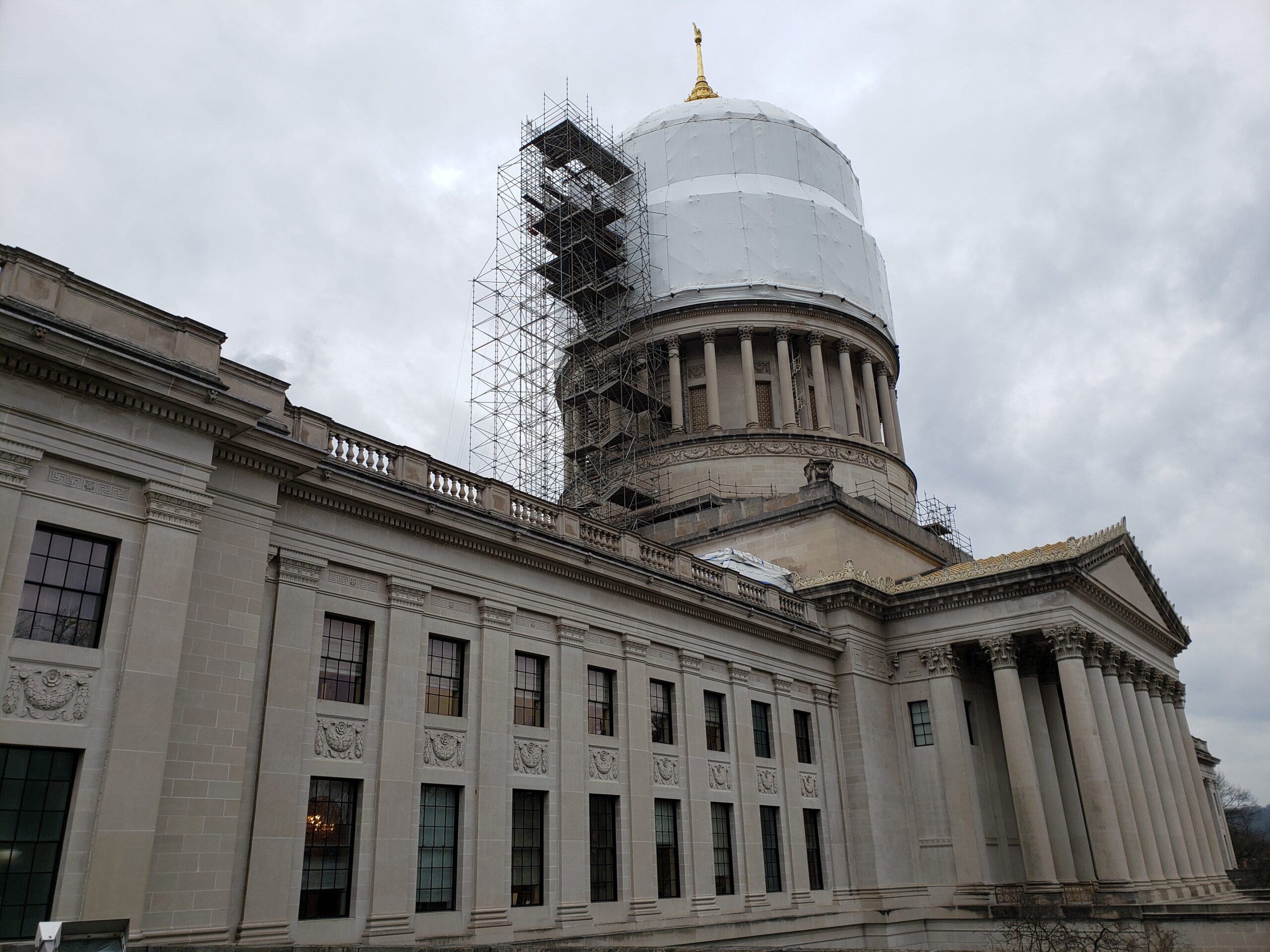MORGANTOWN — The House of Delegates fended off a couple possibly fatal amendments to what’s been called the solar bill on Monday, and adopted a couple tweaks. It will be on third reading for passage on Tuesday.
The House approved a gun bill that prohibits cities from restricting constitutional carry at certain public events – over the objections of the Judiciary Committee chair who presented the bill and would typically defend it.
SB 583 allows electric utilities (there are two in the state: FirstEnergy and American Electric Power) to build or buy and then own and operate a solar plant. The bill provides an expedited Public Service Commission approval process.
Any single plant may produce up to 50 megawatts of power (until a certain sales threshold is reached), with a limit of 200 MW for each parent company and 400 MW statewide.
Until such time as an interested company or companies sign on to buy the solar power, the utilities would recover the facility’s costs by raising consumer rates. Once 85% of a solar plant’s 50 MW capacity is contracted for, consumers would have the increases credited back.
The House approved in a voice vote an amendment t to cap the associated rate hike for heavy industrial users to $1,000 per month.
The House also approved an amendment to allow a non-utility business to install or build a solar facility as part of a commercial operation. Any excess kilowatts produced would be delivered into the PJM regional grid and not sold to other eclectic customers.
Delegates debated and defeated, in a 37-60 vote, an amendment to restrict the rate increase to prospective residential or voluntary users instead of spreading a hike to recover costs among all customers.
A 50 MW solar plant would cost roughly $65 million. Spread across the utility’s entire customer base, the rate hike would amount to about 18 cents per customer per month. Once 85% of capacity was reached, the additional cost would fall to about 3 cents per customer per month. If a company committed to buying all the power up front, other ratepayers would see no hike.
The House also defeated, in a 41-56 vote, require that “all physical components” of the solar plant would be made in USA. Among the objections voiced by the winning side was that the amendment would involve the Legislature in micromanaging business decisions.
Other bills
A gun bill, SB 96, was up for passage in the House. The bill expands on previously passed legislation prohibiting municipalities from passing firearms ordinances more stringent that state code.
The bill expands the list of weapons to include pepper spray and “deadly weapons,” such as blackjacks, switchblades and nunchuks.
As it came from the Senate, it contained a provision concerning limited-duration events held on city streets where traffic is blocked to create space for the event. Under current law, cities may choose to grant admission only to those who carry with a valid license. SB 96 as it came from the Senate bars cities from enforcing that and grants event entry to anyone practicing constitutional carry, which is open carry or concealed carry without a license.
Judiciary chair John Shott, R-Mercer, explained the bill but objected to a vote taken Saturday on an amendment to strike that constitutional carry provision from the bill and allow cities to continue granting entry only to licensed carriers. That amendment was defeated, preserving the Senate version.
Shott said the proposed amendment was defeated through “deceitful bait and switch tactics. … I cannot in good conscience encourage this kind of tactics.”
Delegate Dean Jeffries, R-Kanawha, argued that a city has no way to stop a person without a license from carrying a deadly weapon or shooting from a hotel room into a crowd. “It’s the intent of evil in their heart that does that, not a permit.”
The House passed the unamended bill 81-17 and sent it to the governor.
The Senate had HB 4090 on third reading. It will reduce the tax rate on low-production oil and gas wells to help keep them operating longer and feed the tax revenue into a new Oil and Gas Abandoned Well Plugging Fund for use by the Department of Environmental Protection.
The bill reduces the severance tax from 5% to 2.5% on wells producing from 5,000 to 60,000 cubic feet of gas per day — excluding horizontal shale wells — and for oil wells producing ½ to 10 barrels per day.
Once the Well Plugging Fund reaches $6 million, the state would stop collecting the tax on those wells until such time that the balance drops below the cap. Committee counsel told members that part of the governor’s veto stemmed from his belief the cap was too low.
Last week, the Senate approved an amendment to clarify that the bill does not affect the severance tax proceeds that go to counties and municipalities. The amended bill passed 33-0 on Monday and returns to the Hose for amendment concurrence.
Tweet David Beard @dbeardtdp Email dbeard@dominionpost.com




